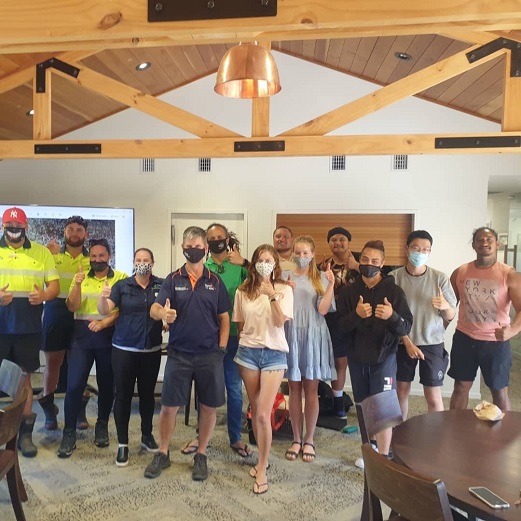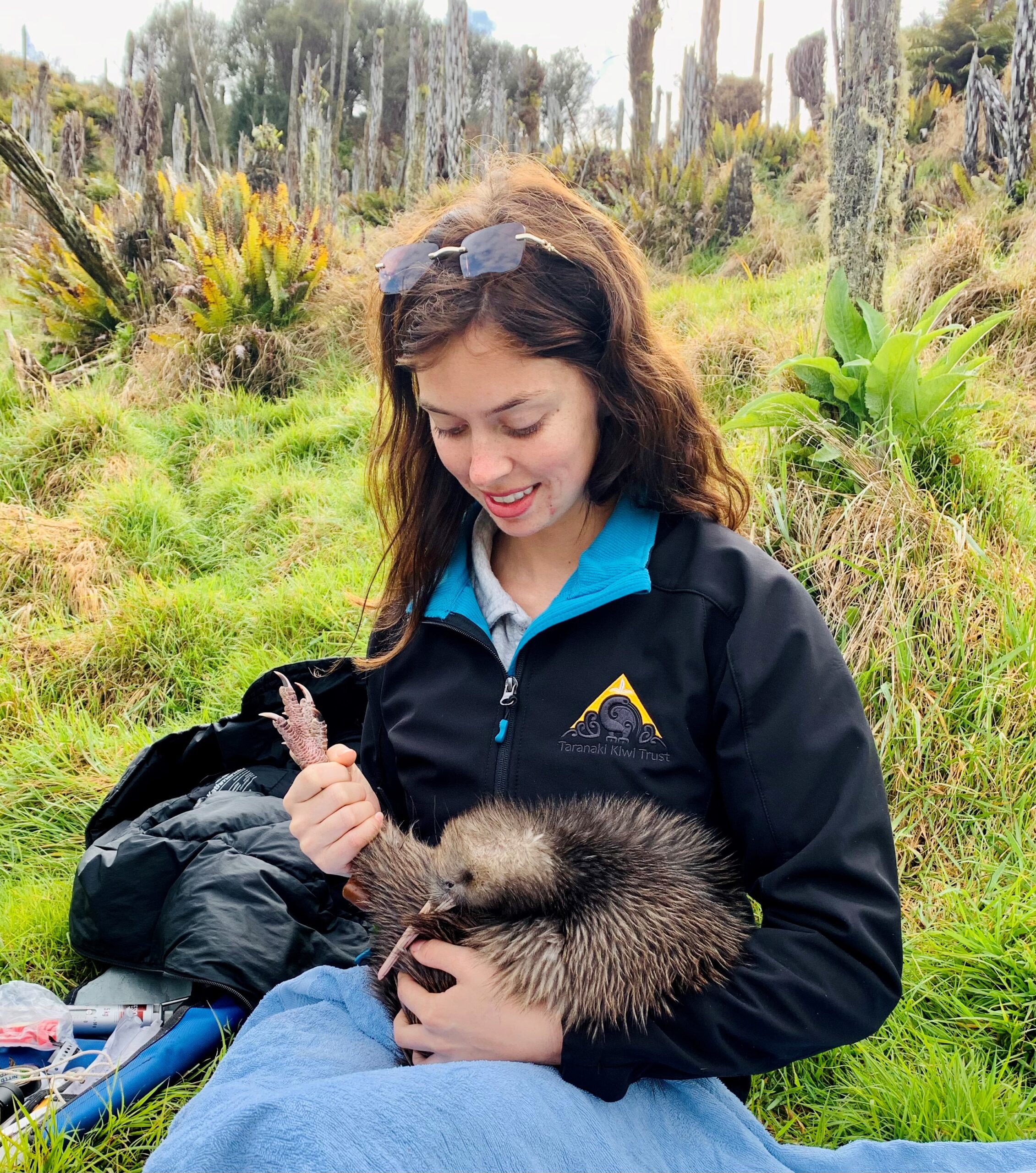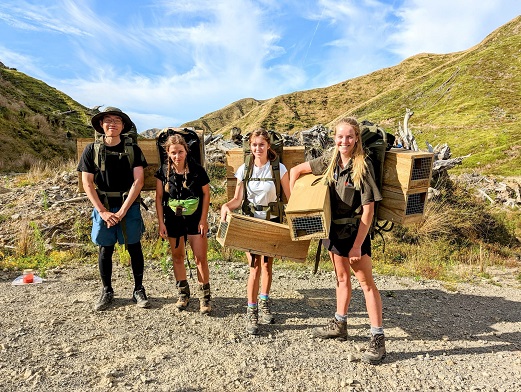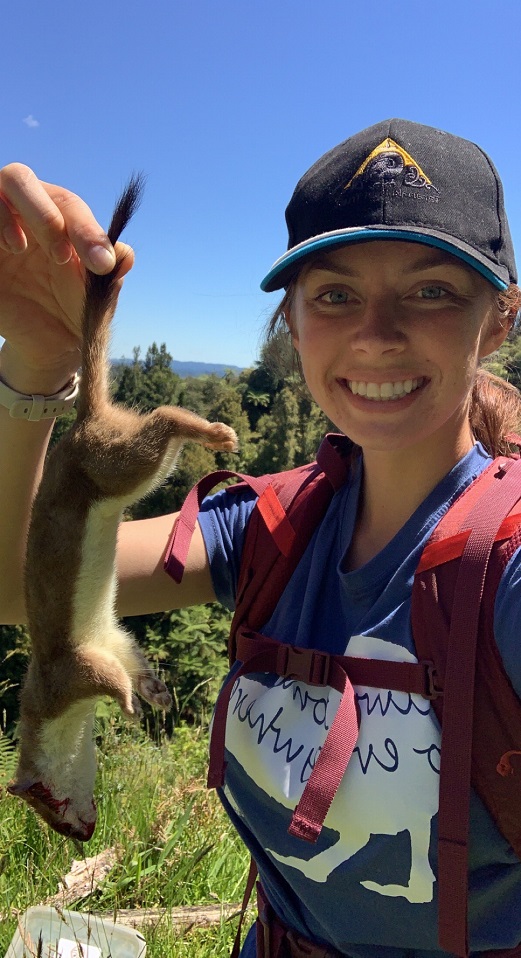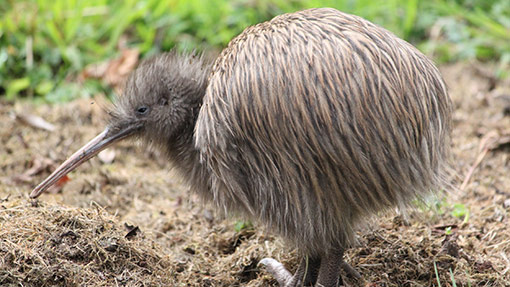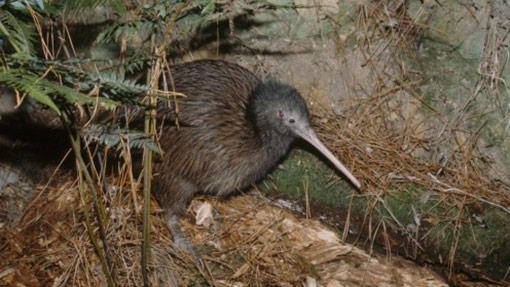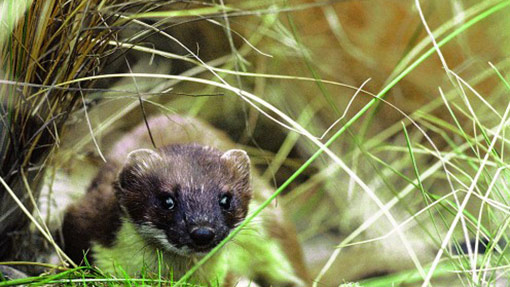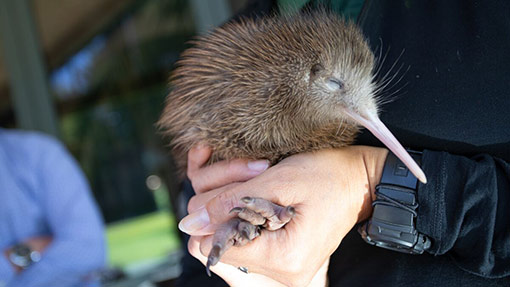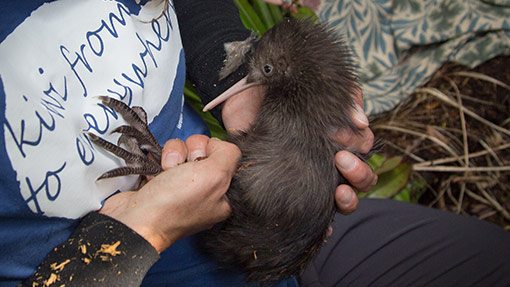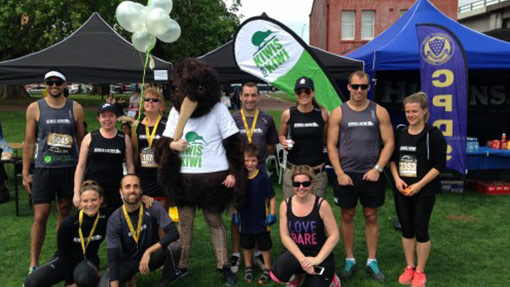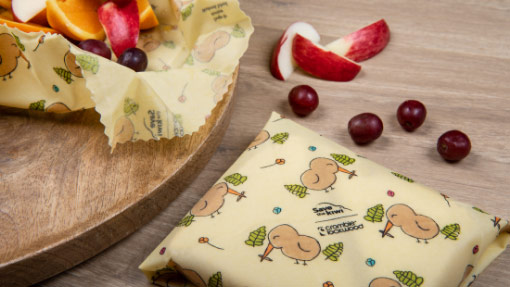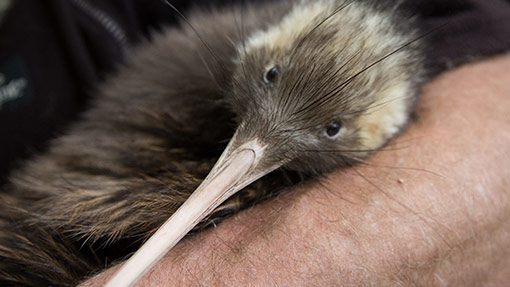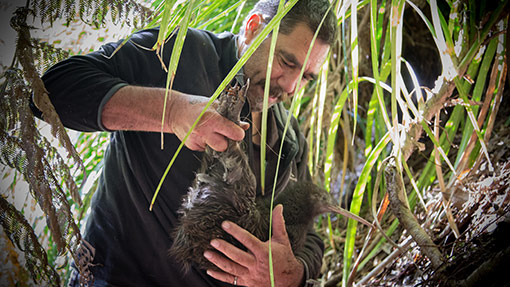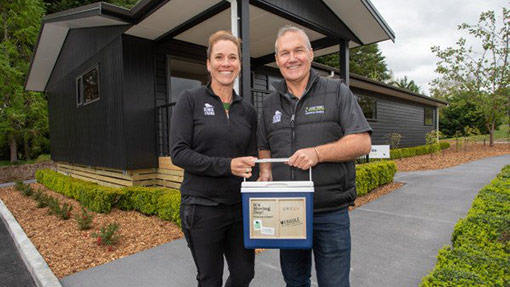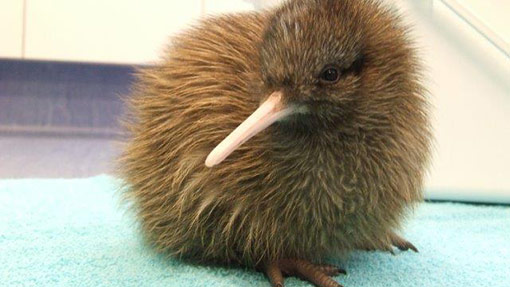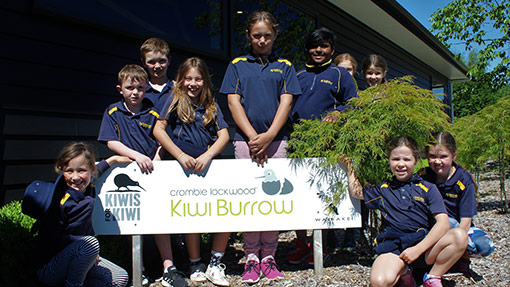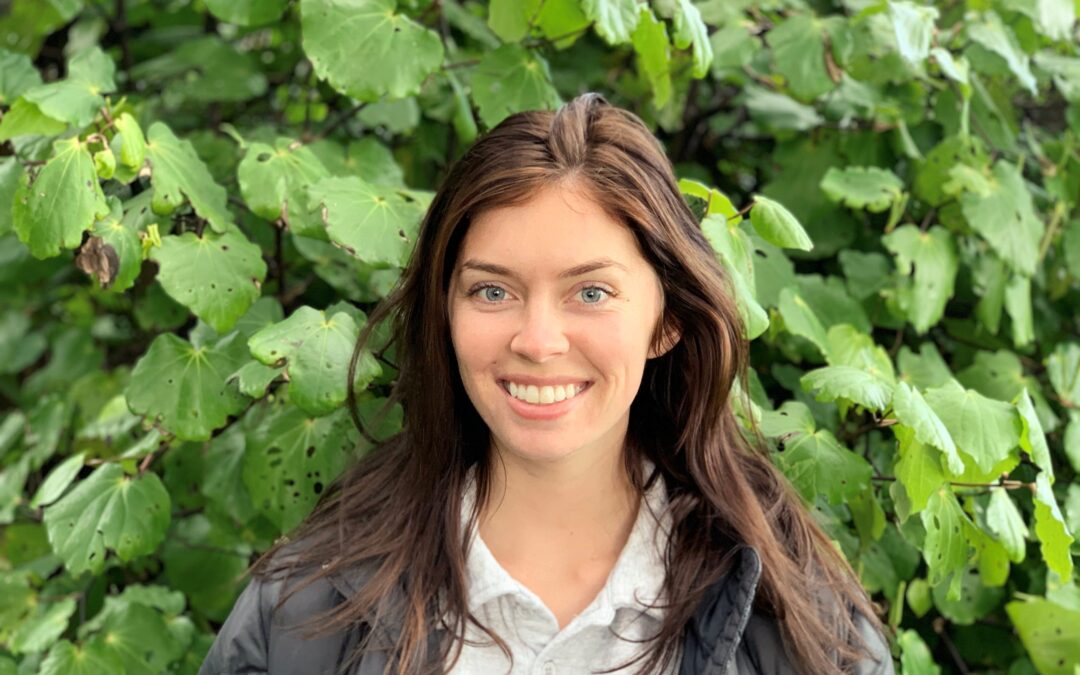For many New Zealanders, the opportunity to work in the outdoors all day every day is what dreams are made of.
For Māia Gibbs, the appeal of the outdoors has always run deep. The 21-year-old was born and bred on her family’s farm in Tongapōrutu, northern Taranaki. She worked for a number of years in her dad’s beekeeping business, then embarked on a quintessential OE to Canada. When she returned to Aotearoa, she headed into hospitality.
“I quicky discovered that hospo wasn’t really my thing,” says Māia. “My friend Tama was working at DOC at the time. He invited me along to do some volunteer hours checking possum lines, so I went out with him as much as I possibly could. I thought it would be such a cool job to have.”
In 2021, Māia and Tama heard about a new kiwi training programme being hosted at Pukearuhe Marae. A Save the Kiwi initiative funded by Jobs for Nature, the kiwi training programme was established to support local conservation groups and mana whenua to learn practical kiwi conservation skills. For Māia, it was an in-road to a paid role in kiwi conservation.
“Tama and I did the kiwi training programme and I had such a good time,” says Māia. “At the same time I was trying really hard to get more volunteer hours because I just loved it. Then I got sent an application for a role at Taranaki Kiwi Trust. I went for it, had an interview on the Maunga which was special, and got it. And now I’m working in a job that I really love.”
Sian Potier who runs the Save the Kiwi training programme says its purpose is to introduce complementary skills to the conservation work already happening in the area.
“There are a number of fantastic conservation projects happening in the Taranaki region with a focus on predator control, and we want to upskill local people to be able to carry out kiwi survey work within their own project areas,” says Sian.
“I first met Māia at one of our workshops. She already had a heap of fantastic skills to bring to the table. I’m stoked that she’s now working in the kiwi conservation space in Taranaki and is continuing to upskill and build on the knowledge that she gained through our training programme.”
Before landing an Apprentice Kiwi Habitat Protection Ranger role at Taranaki Kiwi Trust, Māia hadn’t seen a kiwi in the wild before.
“I’d hear them all the time, but I’d never seen one,” she says. “They’re such an interesting bird. Knowing that kiwi might be there but never actually seeing them is quite special.”
Māia’s favourite part about her job is being outside every day.
“I feel free! With this role I can manage myself which is really nice. While the role focuses on predator control, it’s different every day. Sometimes I’m out checking traps, other times I’m doing workshops and trainings. I’ve done a chainsaw course, first aid course, and trapping workshops with Save the Kiwi National Predator Control Advisor John Bissell. I’ve even done a day of telemetry training with Sian.”
Taranaki Kiwi Trust manager Celine Filbee says Māia is a real asset to the team.
“Māia has proven her worth many times over in the few short months she has been with the Trust,” Celine says. “She attacks her mahi with gusto, from scraping dead stoat out of a trap to painting the depot, tracking a kiwi, or cooking a BBQ for landowners. Rangatahi like Māia are the brains, brawn, and backers of our country’s conservation future.”
Sian says Jobs for Nature is doing wonders for conservation in the Taranaki region.
“Jobs for Nature has been incredible for the conservation community here in Taranaki as it has given people from all walks of life the opportunity to learn practical and technical skills that will help them become the country’s future conservation leaders.”
Māia says getting involved with Jobs for Nature was the ideal way to step into a career that she loves.
“I’ve met heaps of people this year who started around the same time as I did, whose roles have been supported by Jobs for Nature,” she says. “Everyone loves their jobs and it’s really cool to see everyone so happy. I didn’t know so many people were into kiwi conservation because I hadn’t had that much experience in it, but every single person who I’ve met is so keen which is really cool.
“Jobs for Nature sets you up with that real job experience and it’s pretty cool it’s offered to people. And anyone I talk to want to stay in conservation because of Jobs for Nature. I know I do.”
